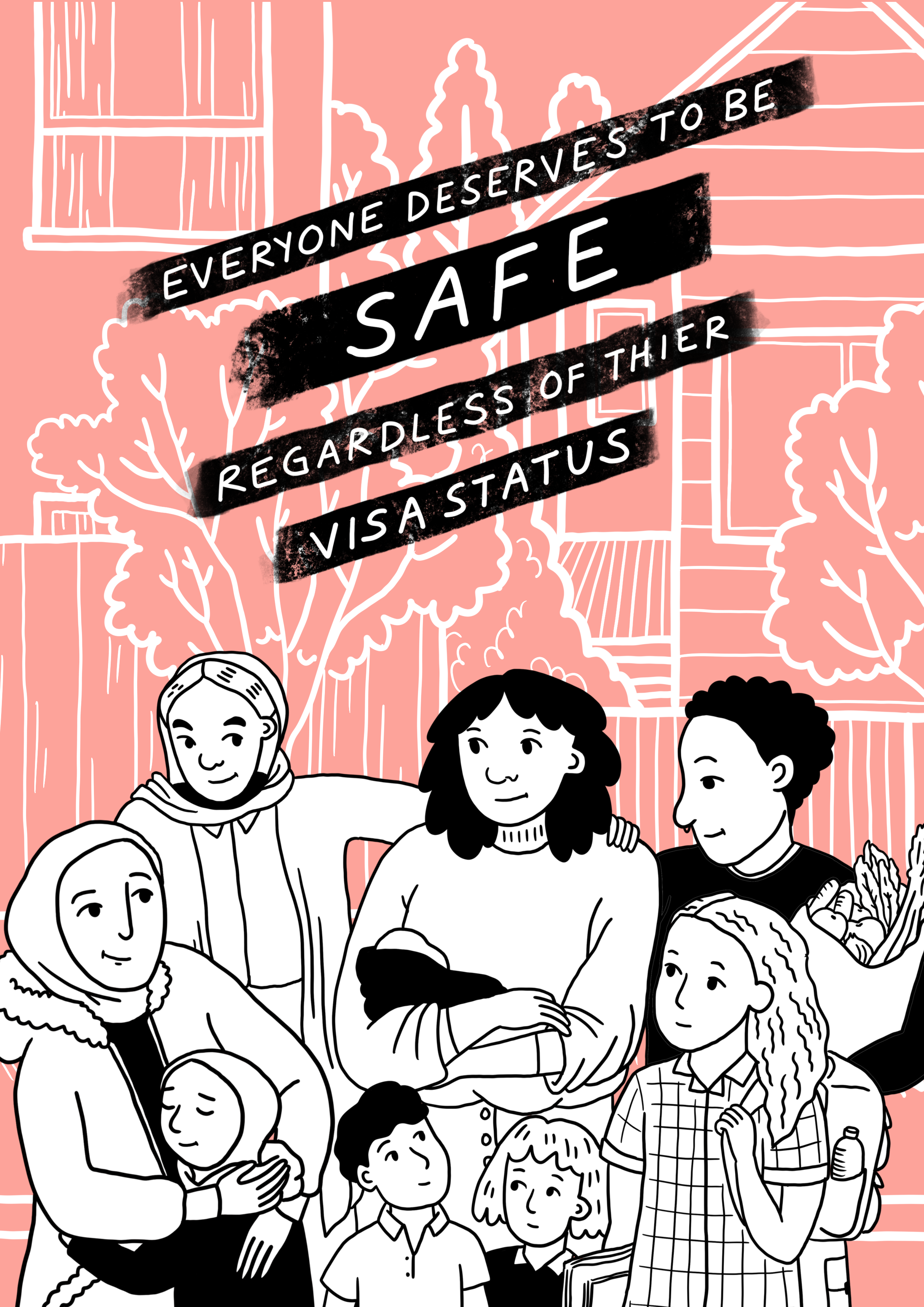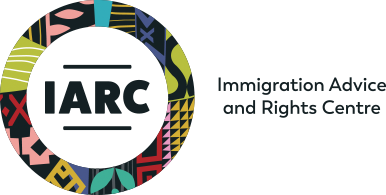IMMIGRATION AND
DOMESTIC VIOLENCE
IARC offers free immigration legal advice and assistance to people experiencing vulnerability and gives priority appointments to people subject to domestic and family violence.
Domestic and family violence is never OK. It can take various forms, including physical harm or threats of harm, verbal abuse, financial abuse, damage to property, injury of pets, and controlling behaviour. Migration-related abuse may include threats to have visas cancelled or to withdraw sponsorship for a visa, threats to have a person deported, or threats to separate a parent from their child.
IARC’s work has a special focus on the intersection between domestic and family violence and immigration law. More than half of the work we do is related to domestic and family violence. Our goal is to offer independent, confidential immigration advice and assistance to victim-survivors of domestic and family violence so they know their rights and can make informed choices.
IARC also offers information sessions and resources to community support workers and organisations who assist people experiencing domestic and family violence. We work with a variety of other community legal centres, service providers, and peak bodies to advocate for changes to immigration law and policy which support victim-survivors of domestic and family violence to find safety and stability.
If you need legal advice in relation to immigration and domestic and family violence, please read our frequently asked questions and fill out the enquiry form below.

ENQUIRY FORM
Legal advice is by appointment only. If you need help, please complete our enquiry form below.

FREQUENTLY ASKED QUESTIONS
We encourage you to reach out and get free, confidential, and independent immigration advice about your visa and your options. If you are in New South Wales, you can contact IARC to seek advice. The best way to reach out to IARC is to complete our online enquiry form. You are also welcome to call us on (02) 8234 0700. We can arrange for an interpreter if you need one.
No. IARC has strict confidentiality obligations. We do not communicate with anyone about you or your matter without your permission and clear instructions.
Yes, you are welcome to have a support person with you during your appointment(s) with IARC. However, IARC cannot give advice to another person on your behalf. Our goal is to ensure that you understand your visa situation and you can make informed decisions about what you want to do.
That depends. Your obligations depend on a number of different things, such as what visa you have now, any visa applications you have made, and what has changed. If your circumstances have changed, you should get legal advice about your options and obligations.
The family violence provisions apply to certain visas and may allow people to continue with an application for such visas where their relationship has ended and they have experienced family violence. The family violence provisions may apply if:
- You have applied for a Partner (subclass 820/801) visa or are in Australia as the holder of a Partner (subclass 309) visa
- You hold a Prospective Marriage (subclass 300) visa and have married your sponsor
- You have applied for a Dependent Child (subclass 445) visa
- You have applied for a Distinguished Talent (subclass 858) visa
- You have applied for an Offshore Partner (subclass 309/100) visa and certain provisions apply to you
For general information on the family violence provisions, please see our Fact Sheets.
If you have questions about your personal visa situation, please reach out for legal advice.
You should help them seek confidential and independent immigration advice. You can ask them if they would like you make a referral to IARC on their behalf or give them our contact information.
To make a referral, please head to our online referral page.
Once we receive your referral, we will try to contact your client directly.
Due to our strict confidentiality obligations, IARC will not communicate with you about a client. We require clear, written consent from clients before we can communicate with you about them. If your client would like us to be able to communicate with you, such as to help arrange appointments or help with follow-up actions after an appointment, please ask your client to complete our Third Party Authority form.
Please note that even with the Third Party Authority form, we cannot give you advice on behalf of your client and we are generally unable to repeat advice to you. If a client would like you to be present to support them during an appointment, you are more than welcome to join the appointment.
IARC offers information sessions and community legal education (CLE) on this and various other topics. Please feel free to fill out our community legal education enquiry form. You can also follow us on Facebook to stay up to date with upcoming training sessions and our community engagement: https://www.facebook.com/IARCAustralia/.
Important Information and Updates
Prospective Marriage Visas
This information sheet may be relevant to you if you are over the age of 18 and intend to marry an Australian citizen or permanent resident, or an eligible NZ citizen.
DownloadPartner Visa Applications in Australia
Information about how to apply for a partner visa if you are onshore.
DownloadPartner Visa Applications outside of Australia
Information about how to apply for a partner visa if you are offshore.
DownloadBreakdown of Relationship – Partner Visas
This information sheet may be relevant to you if your relationship with your sponsor for a partner visa has broken down.
DownloadOffshore Refugee and Humanitarian visas
Information about Australia’s offshore refugee and humanitarian visas.
Download



